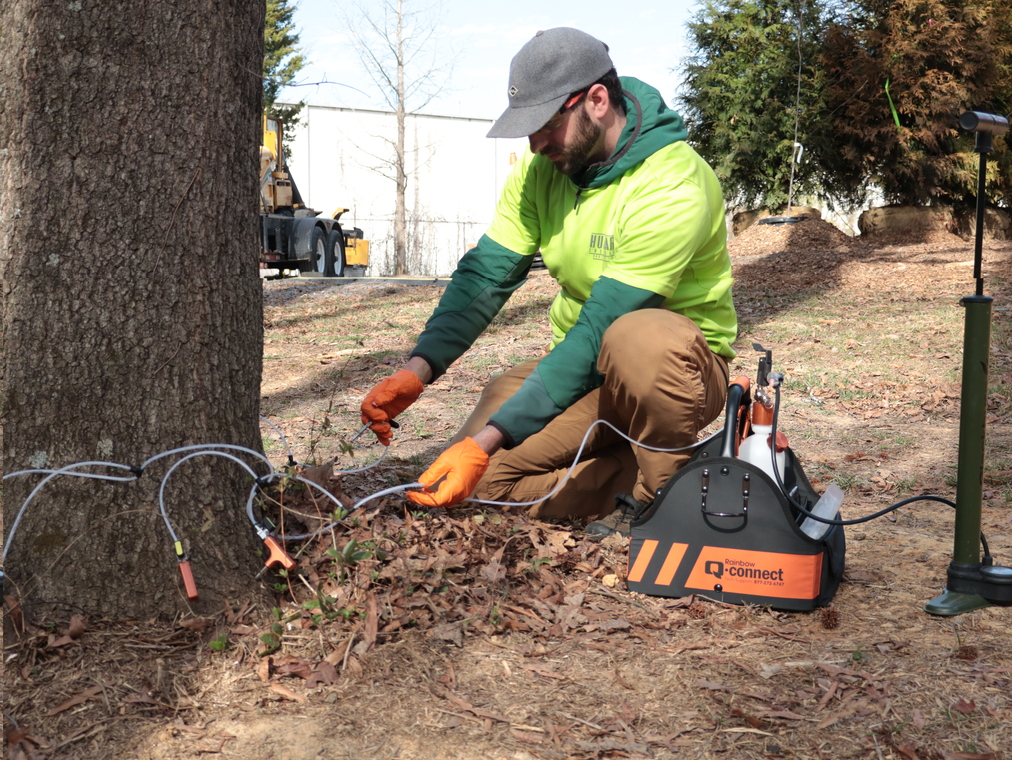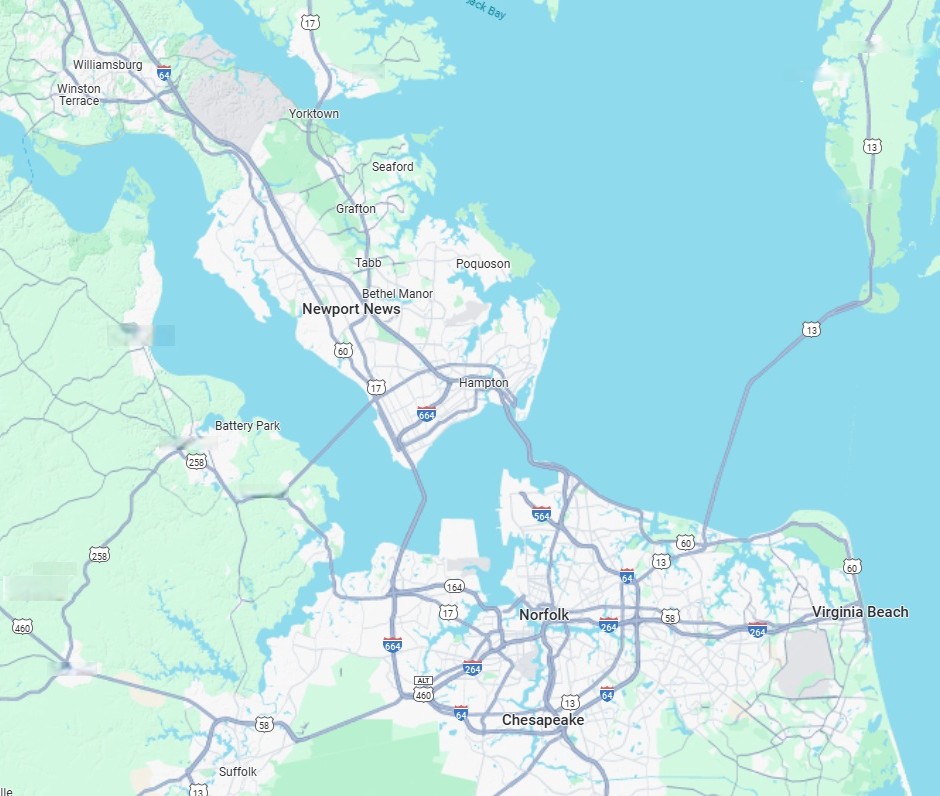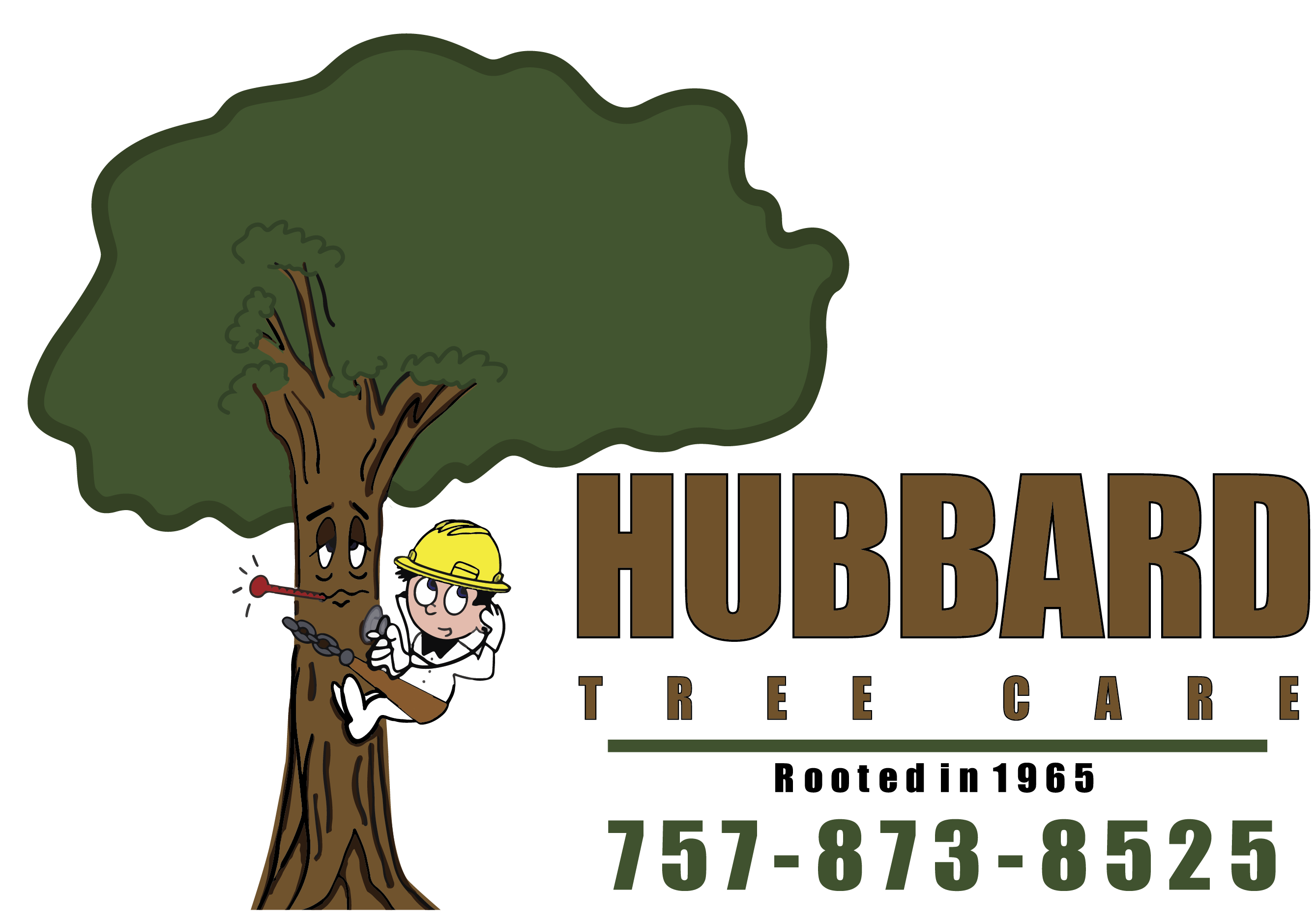Dry, cracked soil. Browning leaves. Weak, brittle branches. If this sounds familiar, your trees may be suffering from drought stress—a common but serious condition that affects trees across Virginia, especially during hot summers and low rainfall periods.
At Hubbard Tree Care, we help homeowners in Newport News, Williamsburg, Virginia Beach, and nearby areas protect and restore their trees from environmental stressors like drought. Here’s what to look for—and why contacting a professional Arborist is the best step you can take.
What Is Drought Stress in Trees?
Drought stress occurs when trees do not get enough water to support normal physiological functions. This doesn’t just happen during visible dry spells—drought stress can accumulate over time, especially in compacted soils or poorly draining landscapes.
Common Signs of Drought Stress:
- Wilting or curling leaves
- Premature leaf drop
- Browning at the edges of leaves
- Sunken or cracked soil near roots
- Stunted growth or sparse canopy
- Dieback of small branches or twig tips
If caught early, drought stress is manageable. Left unchecked, it can lead to long-term decline, disease susceptibility, or even tree death.
Why Choose Hubbard Tree Care?
Trusted Expertise with Over 45 Years of Experience
Our decades of expertise make us a reliable partner for all your tree care needs.

24-Hour Emergency Service
We’re here for you around the clock, offering prompt responses when you need it most.
Fully Licensed and Insured
Rest easy knowing our team is fully certified to provide safe and professional services.
Our Professional Drought Recovery Services
Calling a certified arborist is essential when your trees and shrubs show signs of drought stress. Misdiagnosing the problem or applying the wrong treatment can actually make the damage worse—sometimes even leading to the decline or death of a tree. Our arborists know how to accurately assess soil moisture, root health, and overall tree vitality.
We provide targeted care and safe, effective treatments that restore tree health without causing further harm. When you trust Hubbard Tree Care, you protect your landscape investment and give your trees the best chance to thrive.
Deep Root Fertilization
This tree service injects nutrients and organic matter directly into the root zone, where they’re needed most. Deep root fertilization improves soil health and helps trees recover from drought faster by stimulating root growth and nutrient uptake.
Best Time to Apply: March–June, September–November
Ideal For: Poor soil conditions, drought recovery, trees underperforming due to stress
EcoRich Soil Amendment
Trees recovering from early drought symptoms or construction damage benefit greatly from this organic-rich amendment. It boosts soil biology and aids in moisture retention, helping roots recover naturally.
Best Time to Apply: Spring and Fall
Ideal For: Trees with early root stress or recovering from nearby construction
EcoRevive Soil Amendment
For trees planted in containers or growing in compacted soil, EcoRevive improves nutrient availability and restores soil structure. Drought often worsens these soil issues, making this amendment a critical step in long-term recovery.
Best Time to Apply: Spring and Fall
Ideal For: Container trees or those in tight, poor-draining spaces
Airspading
If your tree’s roots are smothered by compacted soil or suffering from poor aeration, airspading loosens the soil without damaging roots. This allows water and nutrients to penetrate deeper—critical for trees under drought pressure.
Best Time to Apply: Spring through Fall
Ideal For: Trees with girdling roots, compacted soil, or recent construction damage
Tree Balance (Growth Regulation)
This plant growth regulator slows top growth and redirects energy to root development and stress resistance. It’s a smart preventative option for landscapes that regularly face heat and drought.
Best Time to Apply: Late Winter to Early Spring
Ideal For: Trees near obstacles, compacted zones, or those with limited root expansion
Speak to an Arborist
How You Can Help Your Trees Between Service Visits
While our professional treatments are the most effective way to recover trees from drought stress, homeowners play a vital role in keeping trees healthy year-round. Here’s what you can do:
- Water deeply, not frequently: Focus on slow, deep watering once or twice per week during dry spells. Avoid quick surface watering—it doesn’t reach the roots.
- Apply mulch correctly: A 2–4 inch layer of mulch around the base (but not against the trunk) helps retain soil moisture and regulate temperature.
- Watch for early signs of stress: Browning leaves, leaf drop, or slow growth are red flags. Catching issues early allows for faster, more effective treatment.
- Avoid compacting the soil: Keep heavy equipment and frequent foot traffic away from the root zone to protect vital soil structure.
If your trees are already under stress, these steps may not be enough on their own—but they can support our services and help prevent future issues.
Why Proactive Care Matters
Drought doesn’t just “go away” when the rain returns. In fact, trees can take years to fully recover from severe water stress. Proactive care—especially soil-focused services—ensures that your trees are set up for long-term health, resilience, and beauty.


Need More Information?
Our team is here to answer your questions and provide expert advice to address all your tree care concerns
Serving Virginia’s Coastal and Inland Communities
Our team of certified arborists is proud to serve homeowners in Williamsburg, Newport News, Yorktown, Chesapeake, Norfolk, and all surrounding areas. Every property is different, and we tailor our drought recovery solutions to match your specific landscape needs.
Drought Stress FAQ
How do I know if my tree is suffering from drought stress?
Look for signs like wilting or curling leaves, premature leaf drop, browning edges, or dry, cracked soil around the base. Trees under drought stress often appear sparse or weakened compared to healthy nearby plants. If you’re unsure, our arborists can diagnose the issue during an on-site evaluation.
Will deep watering alone fix drought stress?
Not always. While proper watering helps, it may not be enough once a tree is already stressed. Compacted soil, nutrient deficiency, or damaged roots often require professional treatments like deep root fertilization or soil amendments to support full recovery.
When is the best time to treat drought stress?
Spring and fall are ideal for most treatments—especially fertilization and soil improvement—because trees can recover faster during active root growth. However, if you notice symptoms in summer, don’t wait. Early intervention leads to better outcomes.
Can you prevent drought stress before it happens?
Yes! Preventative care like seasonal deep root fertilization, mulching, and regular soil health checks can reduce your trees’ vulnerability to drought. We also offer growth regulation treatments that help redirect energy to root development and increase drought tolerance.
Call Our Experts Before Drought Damage Becomes Permanent
If your trees are showing signs of drought stress—wilting, browning, or leaf drop—don’t wait for the damage to spread. Every day you delay could mean more root loss, more branch dieback, and a longer recovery time.
Getting the right diagnosis from a certified arborist is critical. Call Hubbard Tree Care today at 757-873-8525 to schedule a tree health evaluation. Our certified arborists will assess your soil, root zone, and canopy health to create a custom recovery plan that works.
You can also visit us online to request a consultation. Whether you’re dealing with early signs of stress or worried about long-term damage, we’re here to help your trees bounce back—stronger, healthier, and more resilient than before.


